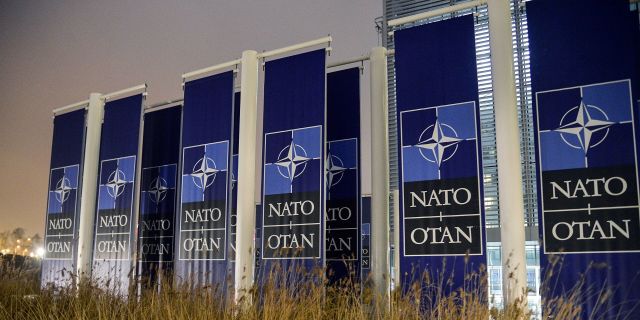The swan song of the Western Alliance?
The power of the United States and Europe is fading, writes The Washington Post. This is largely due to the rapid growth of China and other developing countries. These states are now strong enough to resist the combined power of the West in its conflict with Russia. Therefore, the United States should do everything possible not to alienate them from itself, but to attract them to its side.
Henry Olsen
The unity of Western democracies in response to Russia's special military operation in Ukraine is striking and long overdue. But the fading economic power of these countries may mean that this is a swan song of the old order.
It was economic power that allowed Europe and the United States to dominate the planet. The development of modern science and the Industrial Revolution gave Europe and its "offshoot" in the form of America an economic opportunity to demonstrate overwhelming military power. Thanks to this, they have included the bulk of the planet in their sphere of influence — often forcing countries such as China to submit.
The liberal, rules-based international order that emerged in the second half of the 20th century was based on the continuous global economic dominance of these countries. Other states became richer, but Western Europe, the United States and their Asian allies were still far ahead. By 1950, the gross domestic product of the purchasing power parity of the United States alone was larger than China, India and Russia combined. Add to this the rest of the NATO member states and their Asian allies, and no power could successfully resist their combined might.
The collapse of the Soviet Union in 1991 confirmed this dominance and contributed to its spread. Former Soviet satellites in Eastern Europe joined the European Union, and other countries liberalized their economies and became trading partners of the West. In 2000, the countries that are now imposing sanctions against Russia — the European Union and most NATO countries, as well as Japan, South Korea, Australia, New Zealand, Taiwan, Switzerland and Singapore — produced 79.4% of global GDP.
Over the past 20 years, as a result of globalization, this force has significantly decreased. By 2020, the same states produced only 60.4% of global GDP. This is largely due to the rapid growth of China, but India and other developing countries also grew faster than the West. These states are now strong enough to resist even the combined might of the West in its conflict with Russia. Therefore, many of them abstained during the vote when adopting UN resolutions condemning Putin's special operation and refuse to impose sanctions against Moscow.
These trends are likely to continue. If we focus on the 30 largest economies, the International Monetary Fund estimates that countries imposing sanctions against Russia now account for 64.9% of economic output. The organization predicts that by 2027, the ett indicator will decrease to 58.5%. According to forecasts, by 2040, China and India together will have more GDP at purchasing power parity than the United States and eight other major countries that have imposed sanctions combined. Add to this other developing countries such as Brazil, Mexico, Indonesia and Turkey, and the balance of power in the world will change even more significantly.
Such a development will put an end to two centuries of global domination by the West, unless some of these growing states join our ranks. If countries that do not apply sanctions today create an informal alliance to compete with the West and oust it, the 21st century will become a century of growing political and military tensions. To prevent this is an indispensable condition of Western state policy in the foreseeable future.
In this quest, the West starts with some important advantages. India is China's historical rival. It is also a democracy, albeit chaotic at times. Western criticism of Hindu nationalism, which, apparently, will become the dominant political movement in India in the foreseeable future, creates a threat that this most important country will move away from us. Common sense tells us to maintain the alliance, even if it causes concern among Westerners.
Similar conflicts between Western liberal social values and geopolitical interests should be resolved elsewhere. Brazil's development of vast rainforests is angering climate activists. India and Brazil also contain more than half of the world's cattle, which is the main source of methane emissions. Do we really need climate activity to bring these countries into the arms of China?
Western views on homosexuality can also complicate our geopolitics. Nigeria, for example, will become one of the 15 largest economies in the world by 2040 and will become the largest national economy in Africa. This state, along with many other Islamic and African countries, criminalizes same-sex relationships. Yes, it's terrible, but can we allow this to alienate Nigeria from the West? The growth of China's power and influence means that these countries will have an alternative to development funds and exports of products. And the Chinese authoritarian regime, of course, will not demand human rights reforms from its allies.
Thucydides' dictum is still true: the strong do what they can, and the weak endure what they have to endure. The West has been a world leader for more than two centuries. If we do not adapt now and prepare for the future, today's joint response to Russia may become the swan song of the West.

